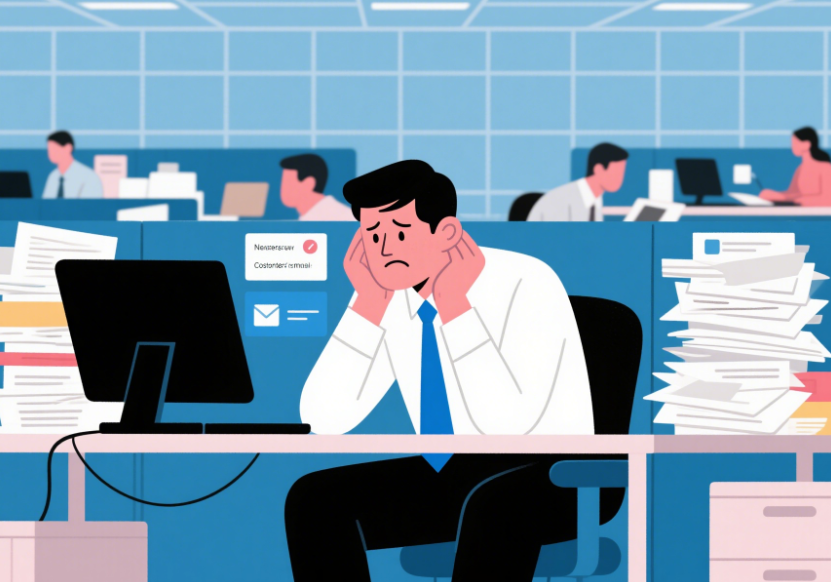 400-076-6558智领未来,外贸超级营销员
400-076-6558智领未来,外贸超级营销员
 400-076-6558智领未来,外贸超级营销员
400-076-6558智领未来,外贸超级营销员

One of the most frustrating scenarios in the world of international trade is when a potential client sends an initial inquiry, you respond promptly and comprehensively, but then they disappear without a trace. No reply to your follow - up emails, no indication of their interest or next steps. This phenomenon is not only demoralizing for salespeople but also a significant obstacle to business growth. In this article, we will delve into high - EQ approaches and corresponding dialogues to handle this situation, supported by real - life case studies to provide practical knowledge for novice foreign traders.
Before formulating a response strategy, it's crucial to understand why clients may go silent. There could be numerous reasons. They might be comparing offers from multiple suppliers, facing internal decision - making processes, experiencing budget constraints, or simply being overwhelmed with other tasks. A survey of over 500 global procurement managers revealed that 35% of them were still in the comparison phase when they stopped responding to initial inquiries, while 25% were dealing with internal approval procedures.
1. Follow - up with Value - added Information
Instead of bombarding clients with repeated inquiries about their decision, send them value - added information. For example, if you're a furniture exporter, you could send an email about the latest furniture trends in their market or tips on furniture maintenance. A well - crafted follow - up email should be personalized, concise, and focused on the client's potential needs. Here's a sample dialogue: "Dear [Client's Name], I hope this email finds you well. I noticed that you inquired about our [Product Name] last week. As the industry is constantly evolving, I thought you might be interested in the latest color trends for [Product Name] that are very popular in your region. These trends can not only enhance the aesthetic appeal of your furniture but also increase its marketability. Please let me know if you'd like more details."
2. Provide Social Proof
Sharing success stories or testimonials from other clients can build trust and credibility. You could mention how similar clients have benefited from your products or services. "Dear [Client's Name], I understand that making a purchasing decision can be challenging. I'd like to share a success story with you. [Client's Name] from [Company Name], who had similar requirements as you, purchased our [Product Name] last year. Since then, they've reported a 20% increase in customer satisfaction due to the high - quality and durability of our products. I believe our solution can bring the same positive results to your business."
3. Ask Open - ended Questions
Open - ended questions encourage clients to share more about their situation. For instance, "Dear [Client's Name], I'm still interested in understanding your specific needs and how we can best serve you. Could you share with me the key factors you're considering in your purchasing decision at this stage?" This approach shows your genuine interest in meeting their needs.
Case 1: The Textile Supplier
A textile supplier in China received an inquiry from a European clothing brand. After responding with detailed product information, the client went silent. The supplier decided to follow up with a personalized email that included the latest fashion trends in Europe and how their fabrics could be used to create trendy clothing. They also attached a case study of another European brand that had successfully launched a new clothing line using their fabrics. The client was impressed and eventually placed a large order.
Case 2: The Machinery Exporter
A machinery exporter in Japan faced a similar situation. A South American client stopped responding after the initial inquiry. The exporter sent an email asking open - ended questions about the client's production requirements and challenges. Through this communication, the exporter learned that the client was concerned about the after - sales service. The exporter then provided detailed information about their global after - sales support network, which alleviated the client's concerns, and they resumed the negotiation process.

When clients go silent after an initial inquiry response, it's not the end of the road. By understanding the reasons behind their silence and adopting high - EQ response strategies, you can re - engage them and increase the chances of converting them into customers. Real - world case studies demonstrate the effectiveness of these approaches. Remember, building a long - term relationship with clients is based on trust, value - added communication, and understanding their needs.
Are you struggling with clients who go silent after initial inquiries? Don't miss out on potential business opportunities. Contact us today to learn more about our proven strategies for re - engaging clients and boosting your sales!
.png?x-oss-process=image/resize,h_100,m_lfit/format,webp)
.png?x-oss-process=image/resize,h_100,m_lfit/format,webp)

.png?x-oss-process=image/resize,h_100,m_lfit/format,webp)
.png?x-oss-process=image/resize,h_100,m_lfit/format,webp)
.png?x-oss-process=image/resize,h_100,m_lfit/format,webp)
.png?x-oss-process=image/resize,h_100,m_lfit/format,webp)
